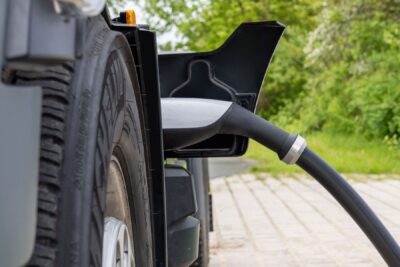Poland put premium purchase on hold but EV sales are rising
Initially, Poland had planned start spending a lavish purchase premium of 8,600 euros for low-cost electric cars from December. Then the country postponed the subsidy indefinitely for a short time. Nevertheless, e-car registrations are rising – a placebo effect?
* * *
Poland was to open applications for the relatively generous purchase premium for buying electric cars of up to 8,600 euros on 11 December last year. In the first round of funding, they expected up to 500 electric vehicles to receive a corresponding subsidy – many customers and car dealers, therefore, prepared themselves for the envisaged conditions early on. Since the purchase premium was to apply to private individuals buying low-cost electric cars with a price of up to 29,000 euros only, those willing to buy ordered small and medium-sized cars such as the Skoda Citigo e iV (from 18,500 euros), the Renault Zoe (from 28,000 euros), the Opel Corsa-e (from 28,000 euros) or the Nissan Leaf (from 26,818 euros) in the fourth quarter of 2019.
After initial criticism of the government linking the purchase premium with the low price expressed by representatives of Volkswagen and Nissan, Renault, Opel and also Nissan, the carmakers had soon decided to make corresponding offers – with a small price reduction below the approval limit, their own customers should be able to benefit from the subsidy.
To everyone’s great surprise, the approval of the applications was postponed to an uncertain time shortly before their start. Maciej Mazur from the Polish Alternative Fuels Association (Polskie Stowarzyszenie Paliw Alternatywnych, PSPA) told Polish media that in his opinion the reasons for the delay could be the experiences of neighbouring countries.
In particular, the action taken by Slovakia may have scared the Polish authorities. There, the acceptance of applications had to be stopped after just four minutes, as the planned budget had been used up by that time. It seemed possible to the authorities that the demand for the generous support in Poland would have been much greater than in Slovakia. With a run on the full subsidy of 8,600 euros, the volume of the purchase premiums paid out might have been much higher than originally planned by the legislator.
As a result, the government rowed back. “An amendment to the regulation is being prepared. The support will most likely be less than 4,800 euros”, said the responsible Polish Minister of Climate Michał Kurtyka in January in response to an inquiry from the Polish media. His reasoning for the lower subsidy rate: “More interested parties would benefit from it”. Kurtyka explained and reminded that the limits had been set in 2018 when the prices for electric cars on the market were much higher.
Not everyone shares the minister’s view. PSPA experts have been discussing the importance of taxation for the development of e-mobility in Poland ever since. According to their assessment, promoting the purchase of e-cars by private individuals is of little importance for the Polish car market, as only one-third of new cars are for private use. Fleet purchases are of much greater importance.
In other words, with appropriate tax incentives for companies to procure electric cars for their fleets, the proportion of these vehicles would increase significantly and move towards the level of Western European countries. One possible measure cited is the abolition of sales tax to end the current niche existence of just 5,700 BEVs on Polish roads at the end of February.
However, the lack of a purchase premium had an extremely unusual side effect in the first months of the year. While the increase in new registrations of electric cars was low in January, the momentum increased significantly in February. Both months saw a 181 per cent increase in the purchase of electric vehicles compared to the same period last year. A total of 609 BEVs were registered.
Of these, 401 were new cars, as the figures from the Polish car market data provider SAMAR show. The best-selling model was the Skoda Citigo e iV, with 92 units sold. In second and third place, with 53 and 50 cars respectively, were the Nissan Leaf and the BMW i3. The Opel Corsa-e accounted for 28 registrations – presumably demonstration cars at the dealerships. In addition, 23 new Renault Zoe cars were registered. The Volkswagen e-Up and the e-Golf were conspicuously rare – given the registration figures in Germany – with only one vehicle each.
About the author
Aleksandra Fedorska is a Polish-German political scientist and publicist. She works as a correspondent for Polish and German media in the fields of energy policy and e-mobility. Fedorska lives and works in the German town of Jagel in Schleswig-Holstein and the Polish city of Poznań. Most recently she reported for electrive on the subsidy programme for electric vehicles in Poland and the country’s utility Rafako turning bus builder.





0 Comments